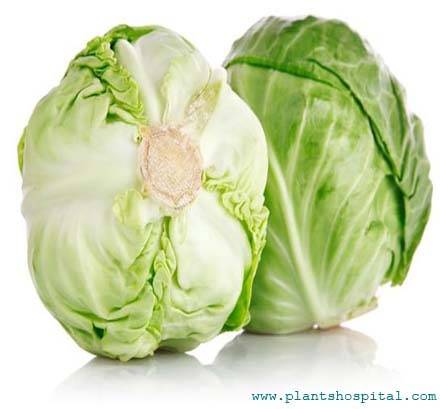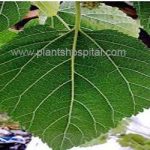If you have a profound love for plants and a genuine appreciation for nature, then enrolling in a degree program in a related field can be a way to stay connected with your passion. Not only will such a program nurture your enthusiasm, but it will also help you cultivate a deeper understanding of your fascination.
By pursuing a degree in a plant or nature-focused discipline, you can actively contribute to the preservation and protection of the environment. You can research and develop innovative solutions for conserving nature with the skills acquired, or you can implement sustainable practices in crucial sectors like agriculture and forestry.
Moreover, a degree program in a plant or nature-related field can open up diverse and exciting career options. This way, you can translate your love for the environment into a fulfilling livelihood.
Considering all these compelling reasons, look at the degrees that can help you stay connected with your passion for nature and plants.
Table of Contents
Master’s in plant pathology
A plant pathology degree shares many similarities with a biostatistics & epidemiology degree. While the latter focuses on researching causes of disease in humans, the former focuses on studying diseases, their causes, and their management in plants.
Like a master’s in biostatistics & epidemiology, a plant pathology degree is also interdisciplinary. It combines information from biology, microbiology, genetics, plant sciences, and agricultural sciences.
With a degree in plant pathology, you learn to identify, understand, and control plant diseases that can impact crop production, horticulture, forestry, and natural ecosystems.
The program also introduces you to factors contributing to plant diseases, such as fungi, bacteria, viruses, nematodes, and other pathogens. Furthermore, it emphasizes the influence of environmental conditions on disease development.
Just as you can enroll in an online biostatistics & epidemiology masters program, you also have the option to enroll in an online master’s in plant pathology. Such a program helps you manage work and study without compromising anything.
The significance of a degree in plant pathology has increased in recent years as sustainable agriculture, food security, and environmental preservation gained promotion.
A master’s degree in plant pathology can help you contribute to developing disease-resistant crops and managing plant diseases. Furthermore, it enables you to promote healthier and more sustainable plant systems.
This degree program’s best aspect is combining classroom lectures and laboratory work with field studies and research projects.
Bachelor’s in environmental science
Environmental science emphasizes the conservation and restoration of natural environments. A bachelor’s degree in environmental science is suitable for plant lovers as it focuses on the interaction between human actions and the natural environment. It explores biodiversity, pollution, climate change, ecosystems, and sustainable development.
During the degree program, you will explore the functioning and dynamics of ecosystems, including the role of plants within them. You will learn about plant physiology and plant-animal interactions.
A bachelor’s degree in environmental science also opens up many lucrative career options. You can work in environmental consulting firms, non-profit organizations, and research institutions. Or you can become an environmental educator if you are passionate about transferring your knowledge and skills to budding environmentalists.
Master’s in botany
A master’s degree in botany focuses on studying plants, their structure, function, classification, evolution, and ecological relationships. It develops your understanding of the diverse world of plants and their role in the environment.
A master’s degree engages you in rigorous coursework and research to explore various aspects of plant biology. By covering topics such as plant ecology, plant genetics, and plant evolution, the coursework develops your understanding of the intricacies of plant life.
A major benefit of a master’s in botany is the chance to pursue specialized study and research. You can choose an area of interest, such as plant molecular biology, plant pathology, or plant conservation.
Besides coursework, fieldwork and laboratory work are other integral components of a master’s in botany program. You get hands-on experience collecting plant specimens, conducting experiments, analyzing data, and interpreting results. During fieldwork, you can observe plants in the natural environment and study their interaction with other organisms.
Bachelor’s in forestry
The next suitable option for a nature-loving person is a bachelor’s degree in forestry. The degree allows you to focus on the health and well-being of plants. You will acquire knowledge and skills to identify tree species, assess tree health, and ensure plant growth and vitality.
A bachelor’s in forestry program typically covers many aspects of managing forests and their resources. One of the areas of focus is plant health and management. In this area of focus, you deeply understand plant biology, including tree physiology, forest ecology, plant pathology, and silviculture. You will know how forests function, the interaction of plants with the environment, and factors that impinge on plants’ health.
Apart from the above areas of focus, a bachelor’s in forestry degree also focuses on studying and applying sustainable practices in forests. You will know the principles of sustainable forestry and the protection and preservation of natural ecosystems.
You will also get an advanced understanding of computer and software applications for data analysis, mapping, modeling, and resource management.
Individuals with a degree in forestry can work as conservation officers, environmental consultants, forest researchers, or urban foresters. They can also work for the government and the National Park Service.
Bachelor’s in sustainable horticulture
A bachelor’s in sustainable horticulture requires studying approaches and techniques to manage and improve plant health sustainably.
You will study courses such as botany, plant propagation, pest management, and soil science. Through the degree, you will learn to care about plants, identify various species, and ensure their proper growth by implementing effective cultivation techniques.
Since this degree emphasizes sustainability, you will learn how to reduce environmental impact, conserve resources, and promote ecological balance. You will also learn about integrated pest management techniques, water conservation strategies, and the use of renewable energy in horticultural operations.
In addition, you will be introduced to hydroponic systems and greenhouses as innovative techniques in the horticulture field. Hydroponics is a system of growing plants using nutrient-rich water solutions in the absence of soil. Knowing these systems, you will learn to control nutrient delivery, water usage, and environmental conditions, resulting in efficient plant growth and higher yields.
Greenhouses protect plants from harsh weather conditions, pests, and diseases. They also allow optimal light exposure and temperature regulation to improve plant growth.
Also read about :- The Importance of Inclusive Design in Mobility Aids & How to Incorporate Superfoods In Your Diet for Added Nutritional Benefits
Conclusion
Pursuing a degree in a field that keeps you near nature and plants is an opportunity to learn deeper details about plants and their interaction with nature. Through practical and hands-on experience, you learn to apply your knowledge of plants in real-world settings. And contribute to the preservation and protection of plants, starting from your academic life.








